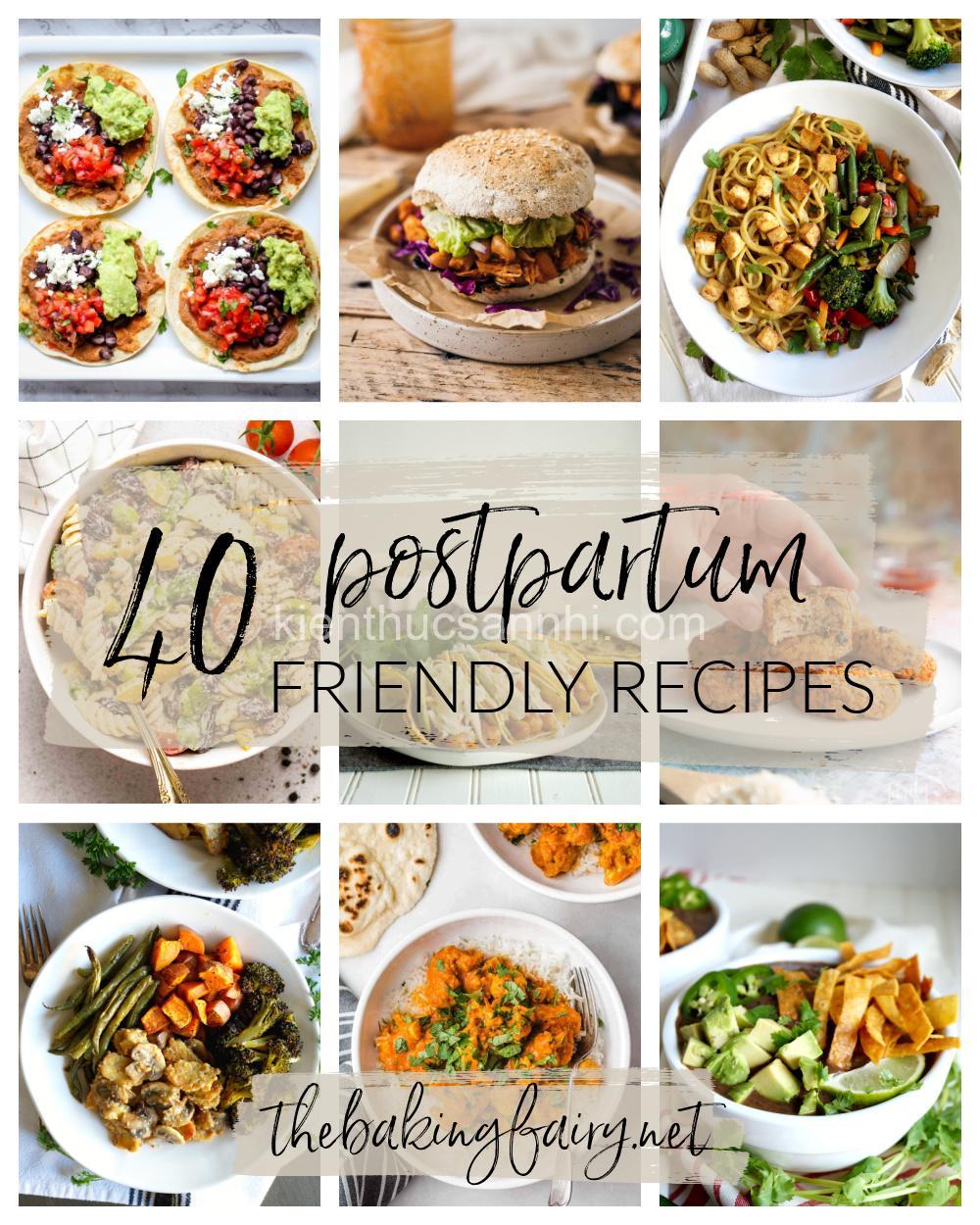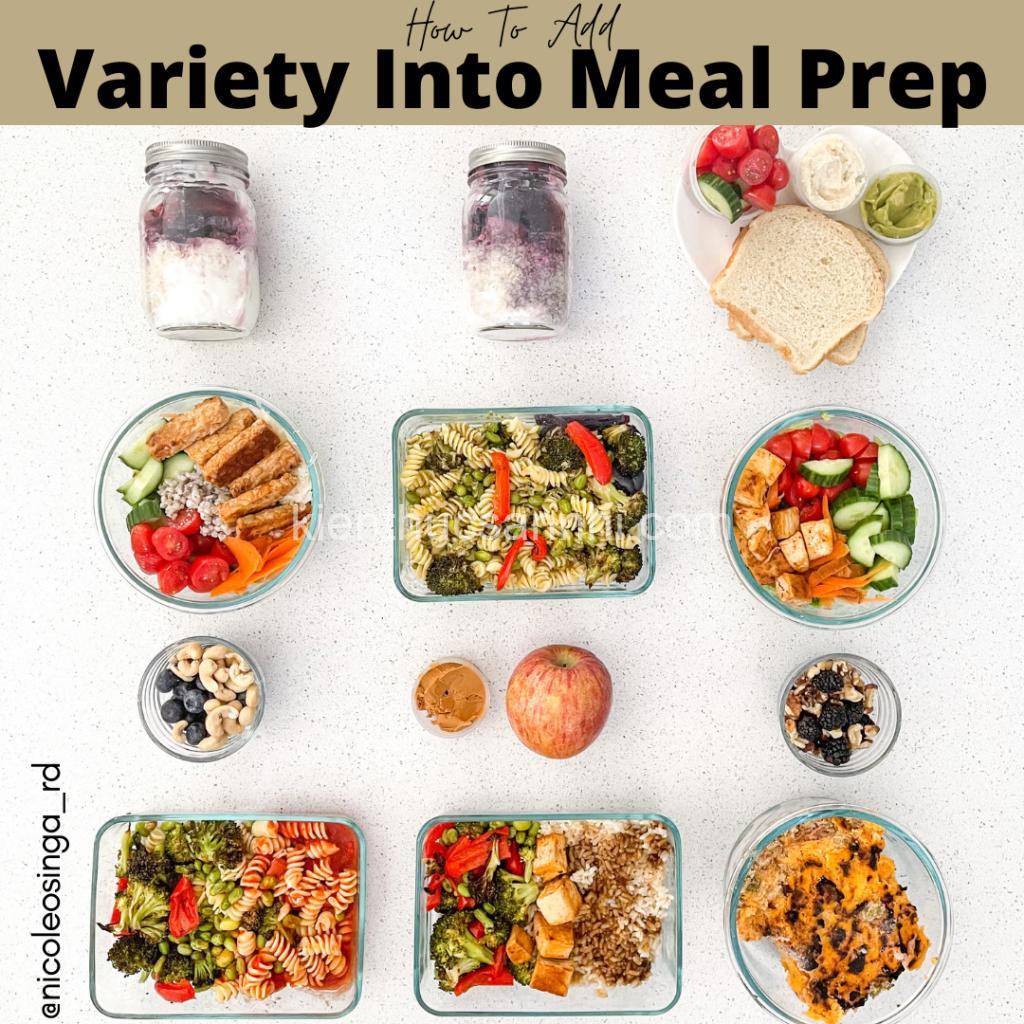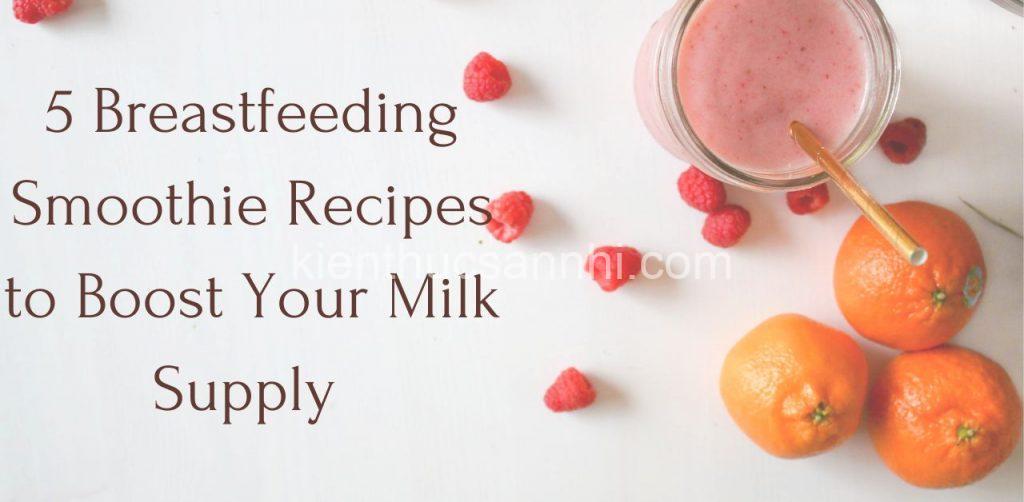
Healthy Postpartum Recipes: Fueling Your Body & Saving Time. In today’s article, kienthucsannhi.com will explore with you in the most detailed and complete way. See now!
Fueling Your Body: Essential Nutrition for Postpartum Recovery
The postpartum period is a time of remarkable change and adaptation, both physically and emotionally. As a new mother, your body is working hard to recover from childbirth and nourish your little one. This means your nutritional needs are greater than ever before. While the focus often shifts to your baby, prioritizing your own health is essential. This is because your baby’s health depends on yours!
Your body requires a surplus of energy for breastfeeding. You may notice increased appetite and a need to consume more calories. In addition to calories, it’s crucial to consume enough protein, iron, calcium, and other vital nutrients to support your recovery and your baby’s growth.
Here’s a breakdown of what your body needs most:
- Protein: Crucial for rebuilding tissue, repairing muscle, and producing breast milk. Excellent sources include:
- Lean meats like chicken, turkey, and fish
- Eggs
- Dairy products such as yogurt and cheese
- Legumes such as lentils and beans
- Nuts and seeds
- Iron: Helps carry oxygen throughout your body, preventing fatigue. Good sources of iron include:
- Red meat
- Chicken liver
- Spinach
- Beans
- Tofu
- Calcium: Important for bone health and milk production. Good sources of calcium include:
- Dairy products like milk, yogurt, and cheese
- Leafy green vegetables like kale and spinach
- Fortified plant milks
- Sardines and salmon (with bones)
- Fiber: Aids digestion and prevents constipation, a common postpartum issue. Good sources of fiber include:
- Fruits such as berries, apples, and pears
- Vegetables such as broccoli, carrots, and sweet potatoes
- Whole grains such as brown rice, oats, and quinoa
- Legumes such as beans and lentils
- Healthy Fats: Essential for hormone balance and brain development. Good sources of healthy fats include:
- Avocados
- Nuts and seeds
- Olive oil
- Fatty fish like salmon and tuna
In addition to consuming nutrient-rich foods, staying hydrated is crucial for both you and your baby. Aim to drink plenty of water throughout the day.
Time-Saving Tips for Busy Moms: Strategies for Postpartum Meal Planning
Life as a new mom can be hectic! Between feedings, diaper changes, and limited sleep, finding time for meal prep can feel overwhelming. That’s why prioritizing quick and easy meals is essential.
Here are some strategies to help you stay nourished:
- Plan ahead: Dedicate a few hours each week to meal planning and prepping. Prepare large batches of dishes that can be easily reheated or frozen.
- Stock up on staples: Keep your pantry and refrigerator stocked with healthy ingredients such as fruits, vegetables, whole grains, protein sources, and healthy fats.
- Embrace one-pot meals: These simplify cooking and cleanup. Think of dishes like pasta with vegetables, lentil soup, or roasted chicken with potatoes and carrots.
- Utilize your freezer: Prepare extra portions of meals and freeze them for later. This can be a lifesaver on busy days.
- Enlist support: Don’t be afraid to ask for help! Family and friends can often lend a hand with meal prep or childcare, allowing you to focus on getting a nutritious meal.
- Prioritize healthy habits over perfection: Aim for nutrient-rich meals whenever possible, but don’t beat yourself up if you don’t always achieve culinary perfection.
Delicious & Nutritious: Recipe Ideas for Quick Postpartum Meals
Here are some ideas to get you started:
- Breakfast:
- Smoothies: Combine your favorite fruits, vegetables, yogurt, and protein powder for a quick and nutrient-packed breakfast. (Recipe – (Recipe, Contains, Ingredients)).
- Egg-Based Dishes: Scrambled eggs, omelets, or breakfast burritos provide protein and energy.
- Yogurt with Fruit & Granola: A simple and satisfying option.
- Lunch & Dinner:
- Salads: Quinoa salad, chickpea salad, or Greek salad are light and refreshing.
- Soups and Stews: Lentil soup, chicken noodle soup, or vegetable stew are filling and comforting.
- One-Pot Meals: Pasta with vegetables, salmon with roasted vegetables, or sheet-pan dinners require minimal prep and cleanup.
- Quick Proteins: Grilled chicken, salmon, or tofu can be prepared quickly and paired with vegetables or rice.
- Snacks:
- Fruit: A natural source of vitamins, minerals, and fiber.
- Nuts: A good source of protein, healthy fats, and fiber.
- Yogurt: Provides calcium and protein.
- Hard-boiled eggs: A great source of protein and easy to prepare.
- Hummus with vegetables: A delicious and healthy snack.
Aiding Breastfeeding: Nourishing Foods for Milk Supply and Energy
Breastfeeding is a demanding process, requiring significant energy and resources. A balanced diet plays a vital role in supporting your milk production and providing essential nutrients for your baby.
Here are some tips to help you nourish your body and milk supply:
- Stay hydrated: Water is crucial for milk production. Aim to drink plenty of water throughout the day.
- Consume a variety of foods: A balanced diet ensures you get all the nutrients you need.
- Include foods known to support milk supply:
- Oatmeal: A good source of iron and fiber.
- Fenugreek seeds: Traditionally used to increase milk production.
- Brewer’s yeast: A source of B vitamins and trace minerals.
- Leafy green vegetables: Rich in vitamins and minerals.
Postpartum Recovery: The Role of Food in Physical and Emotional Well-being
The postpartum period involves significant physical and emotional changes. Taking care of yourself through healthy eating is crucial for recovery and overall well-being.
- Focus on nutrient-rich foods: They help rebuild tissue, support hormone balance, and provide energy for healing.
- Stay hydrated: Drink plenty of water to prevent dehydration and support breastfeeding.
- Prioritize rest: Get as much sleep as you can, even if it means napping when your baby naps.
- Gentle movement: Incorporate light exercise into your routine as you feel able.
- Mindful eating: Pay attention to your body’s signals of hunger and fullness. Avoid emotional eating and focus on nourishing your body.
Making it Work: Resources and Support for Postpartum Nutrition
Navigating postpartum nutrition can feel overwhelming. Remember that you are not alone. There are many resources and support systems available to help you.
- Consult a registered dietitian: They can provide personalized guidance based on your individual needs.
- Connect with other mothers: Join online support groups or forums for new moms to share experiences and tips.
- Read books and articles: There are numerous resources available to provide information and support.
Final Thoughts: Embracing Nutrition as a Pathway to Recovery
The postpartum period is a time of profound change and growth. Nourishing yourself with a balanced diet is a vital part of your recovery journey. Embrace healthy eating habits, prioritize your well-being, and enjoy this special time with your little one.
What are some healthy recipes for quick meals during the postpartum period?

How many calories should I be consuming during the postpartum period?
The number of calories you need will vary based on your individual needs and activity level. However, breastfeeding mothers generally require an additional 300 to 500 calories per day.
What are some common postpartum nutrition concerns?
Common concerns include constipation, fatigue, mood swings, and sleep deprivation. Addressing these concerns through a healthy diet and lifestyle changes can help you feel your best.
What are some easy meal prep strategies for new moms?
Meal prepping in advance, keeping a stocked pantry, and utilizing freezer-friendly options are all helpful strategies for busy new moms.
Can a healthy diet help with postpartum recovery?
Yes! A nutrient-rich diet plays a significant role in supporting physical and emotional recovery. It can help rebuild tissue, balance hormones, and provide energy for healing.
Where can I find more information about postpartum nutrition?
Consult a registered dietitian, join online support groups, and explore resources like books and articles.
Conclusion:
As a new mother, you’re doing an incredible job! Remember, nutrition is key to your recovery and a healthy start for your baby. Take care of yourself by embracing nutritious meals, asking for support when needed, and finding joy in this special time.
For more information and helpful resources, visit kienthucsannhi.com, where you can also share your own tips and connect with other parents.
Thank you for reading!





